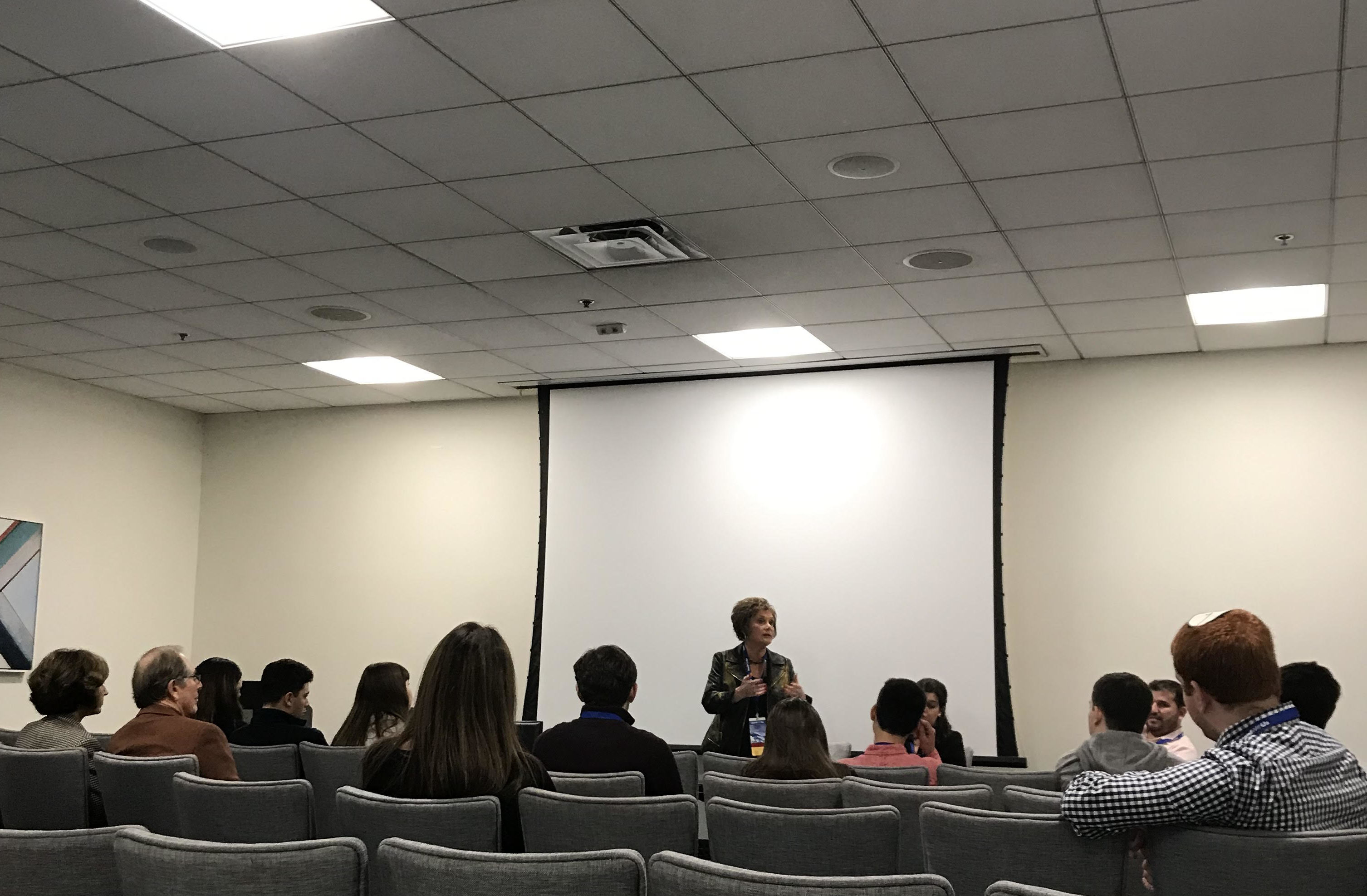
Focusing on legislation that cracks down on the boycott, divestment and sanctions (BDS) movement, was the focus of one of StandWithUs’ “Israel in Focus” International Conference sessions this past weekend at the Hyatt Regency at Los Angeles International Airport.
Joseph Sabag, executive director of the Israel Allies Foundation, told around 30 attendees that anti-BDS legislation is an important way to defend Israel from “economic terrorism” while upholding free speech. He said while BDS was once the purview of non-government organizations the mantle has now been taken up by student groups including Students for Justice in Palestine and outside organizations including Americans Muslims for Palestine.
“Israel didn’t just need [the] iron dome [to destroy incoming] rockets, Israel needed an iron dome policy-wise” to protect its economy, he said.
StandWithUS (SWU) Midwest Executive Director Peggy Shapiro, who moderated the session, said that anti-BDS legislation tends to have one or both of the following components: requiring companies to pledge not to boycott Israel when entering into a business contract with state government, and banning companies that boycott Israel from receiving state investment funds. She added it’s important to ensure that anti-BDS legislation prevents businesses like Airbnb from claiming they’re not supporting BDS since they still operate in Israel, but rather they’re just de-listing from Israeli properties in the West Bank.
Stephanie Hausner, deputy director of the Israel Action Network, told attendees that BDS is a “discriminatory” movement and state governments can decide not to do business with companies that engage in discriminatory behavior. “We’re not saying individuals can’t boycott Israel,” Hausner said, adding that businesses “are not obligated to a state contract.”
Sabag said that the current federal anti-BDS bill, S. 1, enshrines state government’s right to choose not to do business with companies that boycott Israel. He added that claims that such laws inhibit free speech “is really a red herring. We’re not talking about speech in this instance, we’re talking about commercial policy,” he said.
Hausner cited a Jan. 23 case in Arkansas where a federal judge dismissed a lawsuit against the state government’s anti-BDS law on the grounds that the law regulated commercial policy, not speech.
With 26 states adopting anti-BDS laws and anti-BDS legislation being considered at the federal level, Sabag argued that proponents of anti-BDS laws should focus on “enforcement and litigation” of those laws and then take the fight against BDS to the “cultural” arena.
“[It’s] important for you guys to invoke that many state governments agree that BDS is discriminatory in nature,” Sabag said, adding that it’s a “mistake to think that this is only about financial regulation.”























 More news and opinions than at a Shabbat dinner, right in your inbox.
More news and opinions than at a Shabbat dinner, right in your inbox.